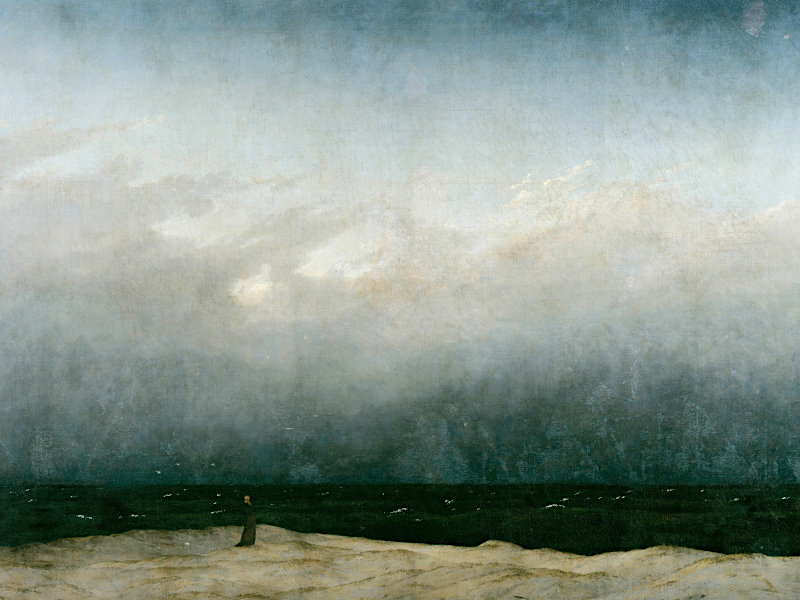The interregnum is understood as a spatial and temporal interval between two established orders. As one dominant power makes way for the next, a discomforting unknown is created where multitudinous possibilities compete for existence. While this can create chaos and unrest, it also makes way for change. The interregnum creates a zone of potential transformation that can become a passage for a new paradigm where, suspended in the tension between subject and object, we no longer think of them as absolutes, but acknowledge them in a spectrum gradient between one and the other.
At this fork in the road we can reassess the old structures, conventions, and ways of thinking and choose whether to create a path for change or simply reaffirm what we already knew. However, these boundless possibilities also create a paralysing fear as we know any choice we make cannot be undone.
This leads us to question whether we truly wish to establish a new order, or remain in this passage that can bridge in-between worlds.
Do we really want to leave the interregnum? Are we ready to navigate the world beyond and confront the contradictions in our current systems, catastrophes, and revelations of our time? In the entanglement of diverse paradigms, how can we avoid finding ourselves lost in the chaos or stuck in a limbo of indecision?
We welcome submissions from diverse fields of research that explore the multifaceted implications of the concept of interregnum, including but not limited to:
Please submit your abstract (max 300 words) and a short bio (max 100 words) via e-mail to interregnum@unive.it by 10th November 2024 (23.59 CET).
We kindly ask you to submit your abstract and bio only in .pdf format.
The abstracts will be evaluated, and the conference programme will be finalized by a committee of PhD candidates from the Department of Asian and North African Studies at Ca' Foscari University of Venice.

|
|
Poster | 2 MB |
|
|
Programme | 2 MB |
|
|
Book of abstracts | 2 MB |
Ca’ Foscari (Aula Mario Baratto), Dorsoduro 3246, Venice (Italy)
This is an in-person event. Online participation can only be justified in specific cases at the discretion of the abstract-evaluation committee.
It will be possible to follow the symposium online only upon request. For more information and for queries please write to interregnum@unive.it.
From the airport you can reach Mestre or Venice (Piazzale Roma) by land (on a bus or taxi) or take the water route to Venice (Alilaguna boat or water taxi).
The Venice railway station is “Venezia Santa Lucia”. The principal train companies in Italy are Trenitalia and Italo. You can purchase the tickets at the train station or online, directly from the relevant websites.
Piazzale Roma and Tronchetto are the two areas in Venice that can be reached by car and where you can find the following park terminals:
For more tourist information please visit Venezia Unica, the Official City of Venice Tourist and Travel Information website.

Photo "Vaporetto stop Stazione di Venezia Santa Lucia 07 2017 4038.jpg" by Mariordo (Mario Roberto Durán Ortiz) CC BY-SA 4.0.
PhD fellow, Department of Asian and North African Studies, Ca' Foscari University of Venice
Research fields: critical pedagogies; higher education studies; Japanese language education
PhD fellow, Department of Asian and North African Studies, Ca' Foscari University of Venice
Research fields: political ecology; regenerative practices in the Chinese food system; agroecology
PhD fellow, Department of Asian and North African Studies, Ca' Foscari University of Venice
Research fields: Chinese ecolinguistics; systems thinking
PhD fellow, Department of Asian and North African Studies, Ca' Foscari University of Venice
Research fields: Buddhism; ethics; new technologies
PhD fellow, Department of Asian and North African Studies, Ca' Foscari University of Venice
Research fields: Chinese second language acquisition
PhD fellow, Department of Asian and North African Studies, Ca' Foscari University of Venice
Research fields: Chinese art history; Chinese handscroll painting; media theory
PhD fellow, Department of Asian and North African Studies, Ca' Foscari University of Venice
PhD fellow, Department of Asian and North African Studies, Ca' Foscari University of Venice
Research fields: critical animal geographies; indigenous knowledge; Himalayan studies
PhD Fellow, Department of Asian and North African Studies, Ca' Foscari University of Venice
Research fields: Urdu manuscripts; literary animal studies; Islamic art, literature and philosophy; Early Modern Deccan
PhD fellow, Department of Asian and North African Studies, Ca' Foscari University of Venice
Research fields: Chinese philosophy; metaphysics
PhD fellow, Department of Asian and North African Studies, Ca' Foscari University of Venice
Research fields: migration and diaspora studies; transformative justice; social movement theory; artivism